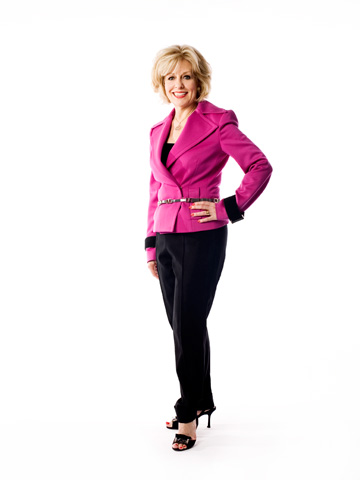Q: What is the Center for Brain Health?
A: We are a research institute, so it’s truly the only center of its kind in the country that looks at how—regardless of your age and what happened to you—we can help your brain learn, remember, and function better. So it is about brain help.
Q: Are men intimidated when you tell them that you’re a brain scientist?
A: Yes.
Q: How much is our understanding of the brain changing?
A: Completely. We’re just now understanding the brain’s response to mental stimulation, exercise, having friends—what impact that has on us. We can actually chart how the brain is responding to those types of stimulations. We’ve learned more about the brain in the last five years than all the years before.
Q: Like what?
A: That you as a healthy person could do something now to make sure your brain functions well 20, 30, 40 years from now. Just like savings accounts.
Q: Which is why you give people “brain health physicals.” Is that a brain scan, like an MRI of my brain?
A: No, it’s testing your higher mental functions.
Q: What do you look for?
A: Your strategic attention, or the ability to filter out daily noise and focus on tasks, and there are specific parts of the brain that help you do that. Your ability to be able to see both the big picture and still address the details of a problem. And being able to examine issues or problems from perspectives other than your own.
Q: In what ways do we weaken our brains?
A: We are doing too much multitasking. You have to let your brain rest. Your brain wasn’t built to do two things simultaneously.
Q: So, in terms of resting, can I sit back and watch junk television? Is that good rest? Am I turning my brain off by doing mindless things?
A: How people rest their brain is going to be a little different. For me, watching TV is painful, so it’s not restful. I have to get out and walk, or exercise. For some people, it’s yoga or meditating. For someone else, it’s taking a power nap. When do you have your moments of insight?
Q: In the shower.
A: For me, it’s at 3 in the morning. When your brain slows down, that’s when you get the conjoining of connections. In sleep, your brain learns more. Information gets consolidated at a higher level. Your brain keeps working for you.
Q: Can you be book smart but dumb about dealing with people?
A: We call that social cognition. It’s something you either have or don’t have. You see people that are a little quirky in personality, you know, a little weird. Now we know, just as there are people who can’t read, some people don’t know how to make friends. And there’s a whole brain network that supports that function, and it can be changed.
Q: So there’s hope for our editor. What is the biggest brain myth?
A: [She gives a detailed one-minute, 55-second answer regarding the idea that too many still believe nothing can be done to improve brain health issues due to trauma or age.]
Q: I was hoping you’d say, “That alcohol kills brain cells.”
A: [polite chuckle]






